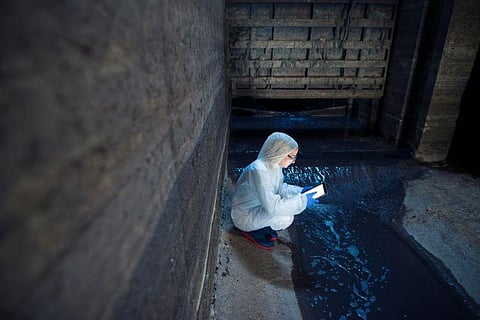WEDNESDAY, Oct. 11, 2023 (HealthDay News) -- Toilet bowls reveal much about the health of a community, alerting scientists to coming outbreaks of flu and other seasonal viruses, researchers say.
“Just one flush can hold a lot of information," said Kristine Du, co-author of a new Canadian study.
"Wastewater surveillance equips public health experts, clinicians, policymakers and the public with community-based, objective data to inform health and safety decisions against the flu and RSV,” said Du, a lab technician at the University of Calgary School of Medicine.
“Knowing what viruses are coming down the pike can help prepare individuals and communities appropriately,” she added in a university news release.
Du and her colleagues found that the clinical cases of influenza A and B, as well as respiratory syncytial virus (RSV) correlated closely with virus positivity rates from wastewater surveillance in Calgary.
Wastewater surveillance rose in prominence during the COVID-19 pandemic, and this new research builds on that.
The study included data from weekly collections of 24-hour composite wastewater samples from three treatment plants in Calgary between March 2022 and April 2023. The samples were then compared to clinical data for total cases and test positivity rates across Calgary and Alberta.
The researchers found that influenza A peaked in Calgary’s wastewater between November and December 2022. Influenza B peaked between February and April 2023. RSV’s peak was between November 2022 and February 2023.
The results of wastewater monitoring offer a novel surveillance approach that can be independent of and complementary to clinical testing, the study authors said.
The investigators also suggest adding more respiratory viruses to wastewater surveillance capabilities.
The findings are scheduled for presentation at IDWeek 2023, opening Wednesday in Boston. IDWeek is an annual meeting of several organizations, including the Infectious Diseases Society of America. Findings presented at medical meetings are considered preliminary until published in a peer-reviewed journal.
More information
The U.S. Centers for Disease Control and Prevention has more on wastewater surveillance.
SOURCE: Cumming School of Medicine at University of Calgary, news release, Oct. 11, 2023


